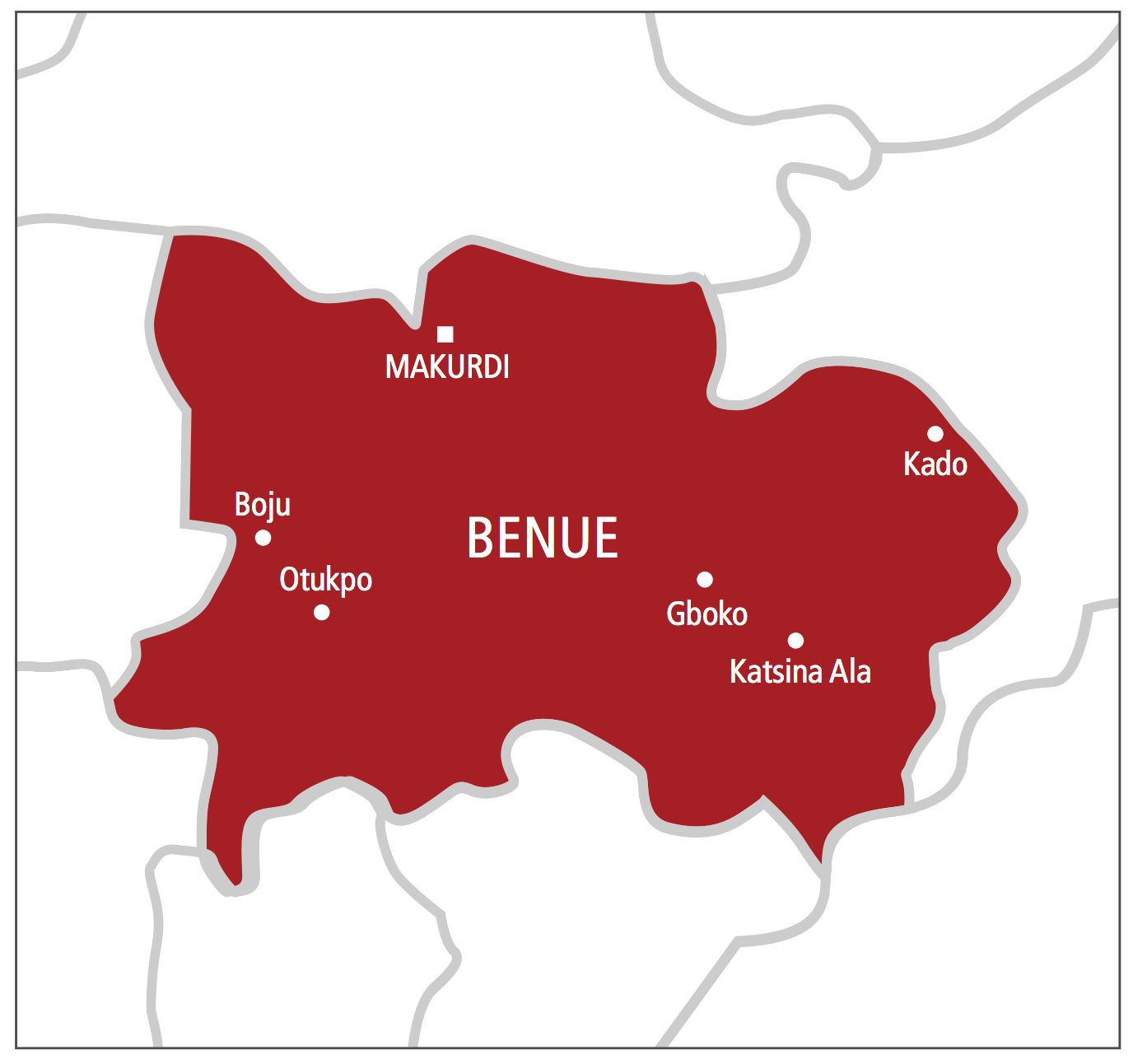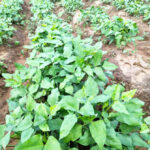Farmers in Benue State are getting ready for this year’s cropping season amid complaints of rising cost of inputs in the market.
Our correspondent reports that the farmers are less worried about the weather forecast this season following the favourable Nigerian Metrological Agency’s (NiMET) prediction of expected normal rainfall.
- ‘Tinubu remains APC’s best presidential candidate’
- Navy nabs 2 suspects, impounds 70 bags of rice in A’Ibom
But the inability of government in previous years to provide adequate inputs or make them available early, as well as lack of individuals’ financial power to make purchases from the open markets seems to be the major challenge facing farmers in the state.
A farmer in the Gboko, Titus Atondu, said he had already prepared his land in expectation of the first rainfall to commence planting, but his major worry remained how he would be able to raise enough money to buy fertiliser and other inputs for his farm.
Atondu said though the seasonal climate prediction (SCP) by NiMET this year had brought a lot of relief to farmers who, like him, had planned their farming activities, he, however, needed money or some sort of government’s policy that would help to facilitate the procurement of necessary inputs to boost crop production.
“Any moment from now, we will start planting yam. That’s the first crop I will plant. Yam has a long span of production; it’s not like other crops with short duration of harvest. Then I will follow it up with maize, groundnut, rice and soybean and other crops, which will be ready within three months.
“I will start planting immediately I see the first rain, but some have even planted their yams. I have done my 2,000 heaps and just waiting for the rains to start planting.
“My biggest challenge, however, is getting herbicides. Last year, a bottle of herbicide was bought at N2,400, but now, it costs about N5,000. And it has become a big problem for farmers who can’t afford it.
“Last year, I bought a carton of that herbicide between N15,000 and N20,000, but now, the same carton sells for N54,000. A carton contains 12 bottles; that’s my greatest worry. If the federal government does not come to the aid of farmers, many of them, mostly the peasants, will not be able to afford inputs, and that will affect food production. This is worrisome,” he said.
Similarly, a female farmer, Ada Samuel, disclosed that it would be impossible for her to afford herbicides and fertilisers for her farming this year because of extreme high cost of inputs.
She said, “As we speak, the cost of herbicides and fertilisers has tripled, not to talk of charges of manual labourers. I am worried because I may end up not farming at all this year.
“I have heard that the weather forecast for this year would favour farming, but where do I raise money to engage in cropping activities?
“Besides, there may be a two-week drought, which may require a short duration for varieties of seeds, so how do I get them? I need money to do so, but if the government would help us with seeds and other inputs at a subsidised rate, it would be good for peasant farmers like me.”
The state chairman of the All Farmers Association of Nigeria (AFAN), Comrade Aondongu Saaku, corroborated the hike in prices of fertilisers and other inputs, stressing the need for government’s intervention early enough for this year’s cropping season.
Saaku emphasised that early intervention would enable the farmers gain better income for their produce, adding that the lower the prices of inputs, the higher profit for farmers.
Meanwhile, the state Ministry of Agriculture and Natural Resources has assured that government would pay early attention to provision of fertilisers for farmers this year.
The director of agric science at the ministry, Thomas Unongo, told our correspondent in Makurdi that his commissioner had already put together a memorandum to be presented to the governor and his cabinet for approval in their next meeting.
“Once approval is given, the state Ministry of Agriculture would go ahead for early procurement of fertilisers. Farmers in the state should expect to get the fertilisers early this year.
“We have started very early this year as against the past two years when COVID-19 affected planning and everything. We will do a lot for our farmers,” the director said.
He added that the prediction from NiMET this year was a welcome development, especially to the farmers, noting that apart from the short spell of about two weeks, there would be adequate rainfall this cropping season, which means that a lot will be achieved by farmers.
“Crops like rice, which is grown in some places, maybe once or twice in a year, can be grown thrice this year because there would be rain from April to November.
“Again, for us to build on that, Ministry of Agriculture will be procuring some short duration crops like rice and the Faro 44 varieties to be given to farmers at a highly subsidised rate. Short duration crops are very easy to plant twice or thrice in a year.
“For the spell, there are some of these dry season crops we are going to build in our procurement for a robust arrangement with some of these seeds company to see what they can do for us,” he said.
He further disclosed that awareness creation about the NiMET weather prediction was ongoing in all the 23 local government areas of the state to acquaint farmers of the relevant knowledge for the cropping season.
On his part, a seed systems principal investigator of the College of Agronomy in JOSTUM, Dr Teryima Iorlamen, advised farmers to start planting by mid May, precisely 15th, following the prediction of normal rainfall this year.
Iorlamen said that early planting of short duration crops would guarantee their escape from the mid July dry spell, adding that early planting for long duration crops would ensure that they are be established by July.
He said, “Farmers can plant melon early in the season. They can also plant maize and other short crops.
“There should be proper planning for the cropping system, especially the cropping sequence, to ensure that succeeding crops take advantage of enabling microclimate created by the preceding ones.
“Rains are predicted to resume by end of April, precisely 26th. However, they (farmers) should wait till two meaningful rain events occur and the depth of rainfall in the soil reaches 15 to 20cm down the soil.”

 Join Daily Trust WhatsApp Community For Quick Access To News and Happenings Around You.
Join Daily Trust WhatsApp Community For Quick Access To News and Happenings Around You.



